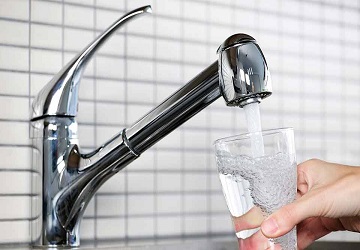Dehydration, Over-hydration and Thirst

Dehydration, Over-hydration and Thirst
Dehydration, over hydration and thirst are all conditions related to the amount of water in the human body. Dehydration occurs when the level of water in the body is less than the required minimum amount. Over-hydration refers to the situation where the intake of water is far greater than what is required. Thirst is the signal given by the brain when the water level in the body is less than the required amount.
Dehydration
Dehydration is the condition displayed by the body when it loses more water than is taken in. It results not only in the level of water going down but also affects the balance of mineral salt and electrolyte balance in the body being disturbed and especially applies to sodium and potassium in the system. To maintain the body in a well hydrated state an adult needs to replace the 2-3 liters of water lost each day by way of breathing, sweating, urinating and excretion. Water cannot be stored and thus has to be replenished on a daily basis as the excess will automatically be expelled via waste disposal systems of the body. Maintaining hydration of the body is so important that it will shift water from one area to another temporarily to cover up any deficits in the short term. It is when hydration fails in the long term that dehydration sets in and can even result in death in extreme cases. Dehydration can be categorized according to the loss of water and minerals as isotonic, hypotonic and hypertonic.
Isotonic dehydration occurs when the fluids outside the cells are lost containing both water and minerals. This is often the case when a person suffers from vomiting or diarrhoea although it can even happen due to not drinking sufficient water. However, there is no shift of water from intracellular to extracellular areas. Hypotonic dehydrationoccurs when there is more mineral salts are lost than water as in the case of high levels of sweating. In this situation there is a shift of water from the extracellular area to the intracellular areas to balance the deficit. Most often the above two types of dehydration can be seen in children suffering from diarrhea. Hypertonic dehydrationoccurs when there is a distinct water loss which exceeds the loss of salt. It can be caused by inadequate intake of water, excessive sweating or taking diuretic drugs. Intracellular water may shift to extracellular areas in a bid to balance out water and salt levels. It can be commonly seen in pediatric patients and diabetics.
Regardless of the type of dehydration it is imperative that the situation is brought under control immediately it is noticed. Dry lips, extreme and continuous thirst, confusion, dizziness, being light headed and sleepy, having a headache, fatigue and very little urine are all symptoms of dehydration. The causes of dehydration can be varied and ranges from physical problems such as vomiting, sickness or diarrhoea to hot climatic conditions and exercising. Even when a person suffers from burn injuries dehydration can set in as a lot of water is required by the tissues around the burn.
Over-hydration
The water content of the body is regulated constantly and firmly as the brain directs the varied processes to either retain or expel excess water and salts from the body. The brain is also instrumental in initiating the mechanism for thirst via the kidneys. However, we can take in more water than is necessary and this will usually result in more frequent trips to the bathroom or more sweating.
Over-hydration refers to severe disturbances in the balance of water. These cases are not common and occur only in rare instances of very high intakes of water. If the water imbalance is mild it is classified as chronic and is harmless. In the case of acute over-hydration it can cause problems, notably in elderly people. It becomes a problem when cells absorb more water and swell up in certain areas causing pressure to build up. One instance is brain swelling and another can be seen in men working in conditions of extreme heat such as mines. More water is taken in than required and the kidney function does not match the intake. The good thing about over-hydration is that it can be controlled by us.
Thirst
Thirst is the result when the mechanism in our body sends signals to notify us that the water level is lower than required. It makes us want to take water or any other beverage and then restore water levels. It is not good to disregard signals of thirst as it can lead to dehydration. Sometimes, we tend to ignore these messages due to factors out of our control. It may be that water is not readily available or it may be that we take a firm decision to override the message from our brain because there are no toilet facilities in sight. This should only be on a temporary level and should be addressed sooner rather than later. Thirst is liable to decrease with age and sometimes when taking medication. In these cases we have to be more mindful about the intake of water and ensure that we drink it regularly.
